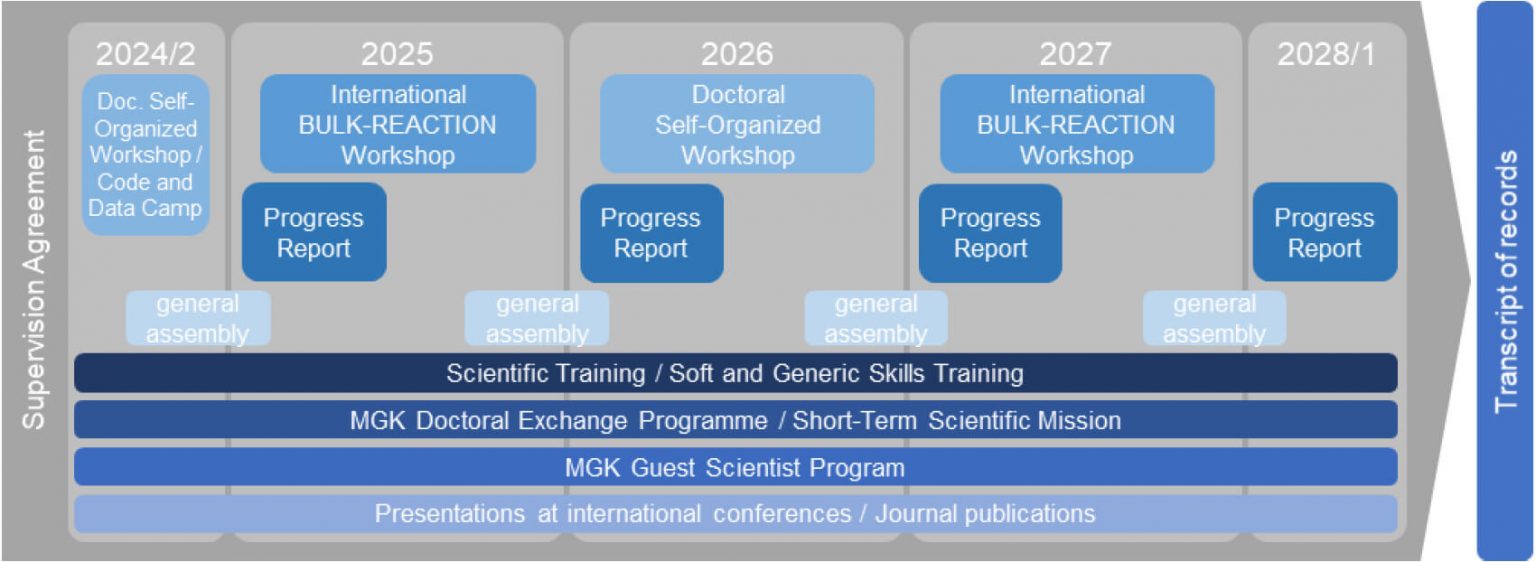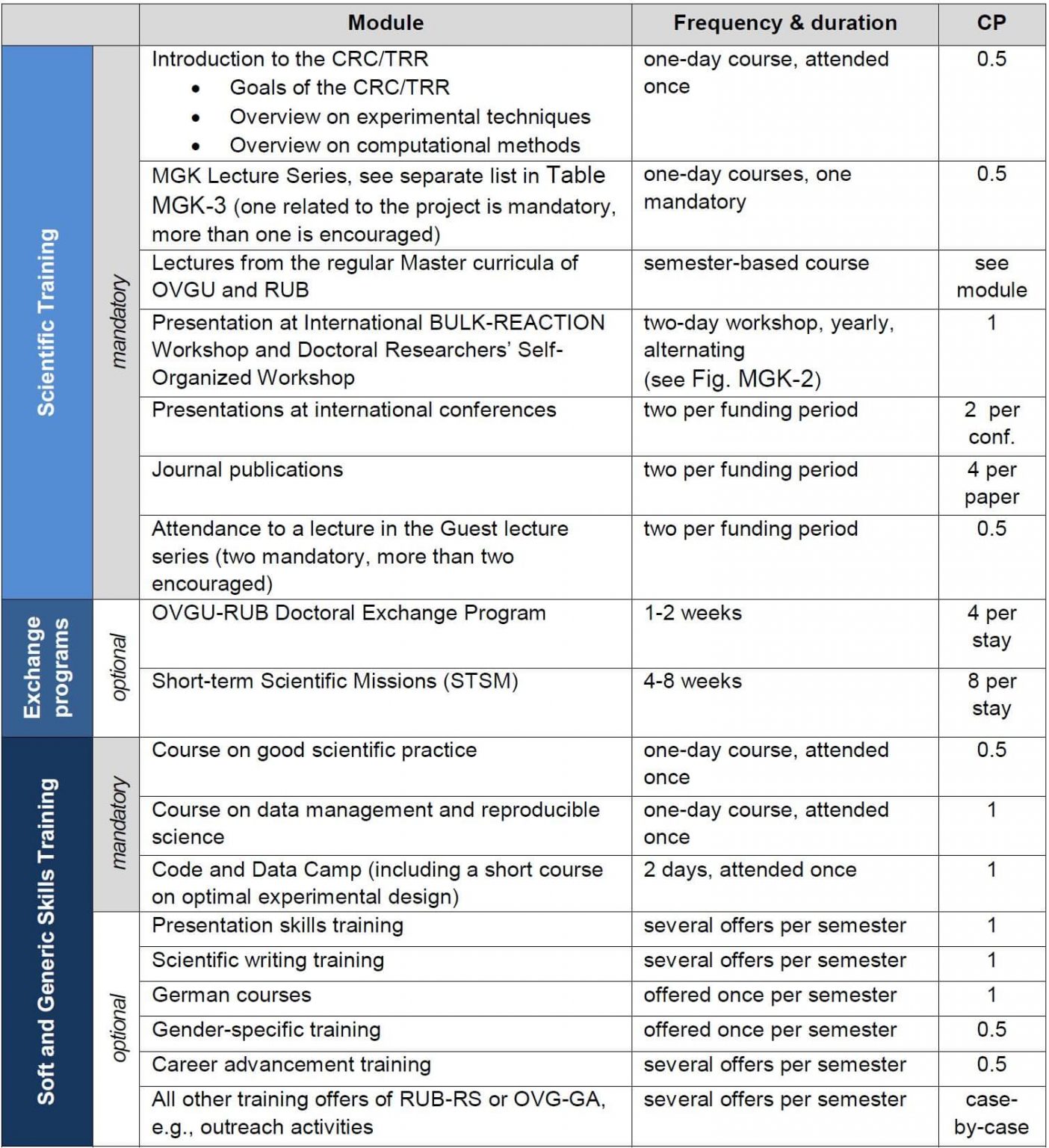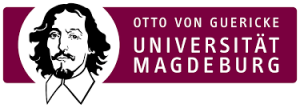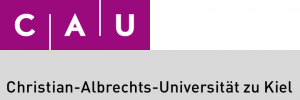Integrated Research Training Group (MGK)
The MGK is the central platform of the CRC 287 for building up the interdisciplinary scientific expertise and integration of the researchers. In addition to providing scientific, generic and soft skills training, the MGK is a key to strengthening the collaboration between the two sites Magdeburg and Bochum.
MGK leaders
MGK administrator
M.Sc. Annemarie Lehr

Renowned international scientist report about state of research in the research fields of the CRC
Successful research within the CRC/TRR requires the doctoral researchers to be trained in a research field that is characterized by complex physics, chemistry and engineering, and a broad variety of experimental and computational methods. Researchers need a thorough understanding of thermal and mechanical process engineering, reactive fluid mechanics, advanced methods of computational fluid dynamics, and modern non-invasive 3D measurement techniques.

Fig. 1: Structural elements of the MGK training plan
The MGK is the central platform of the CRC 287 for building up the interdisciplinary scientific expertise and integration of the doctoral and postdoctoral researchers. The MGK aims to foster independence and responsibility of young researchers and qualifies them for their further academic or industrial career. In addition to providing scientific, generic and soft skills training, the MGK is a key to strengthening the collaboration between the two sites Magdeburg and Bochum.

Fig. 2: Organization of the MGK
A supervision agreement between doctoral researchers and supervisors from both sites and an annual report provided by each team ensure a high level of integration and progress monitoring. All MGK courses and events are conducted jointly by both OVGU and RUB. Additionally, all other courses offered by OVGU and RUB are mutually recognized and credited within the MGK. The structural elements of the MGK comprise both mandatory components for all doctoral researchers and individually agreed elective components.

Fig. 3: Environment of the MGK
The MGK successfully created several measures that encourage collaboration, among them courses in the MGK Lectures Series conducted by PIs of both sites, and dedicated funds for doctoral researcher exchanges. Finally, the MGK increases the visibility of the CRC through a Doctoral Researchers’ Self-Organized Workshop and the PhD students’ and postdocs’ participation in national and international conferences. Other measures for this purpose are Short-term Scientific Missions of doctoral researchers to international research groups, working in the scientific fields of the CRC/TRR.





